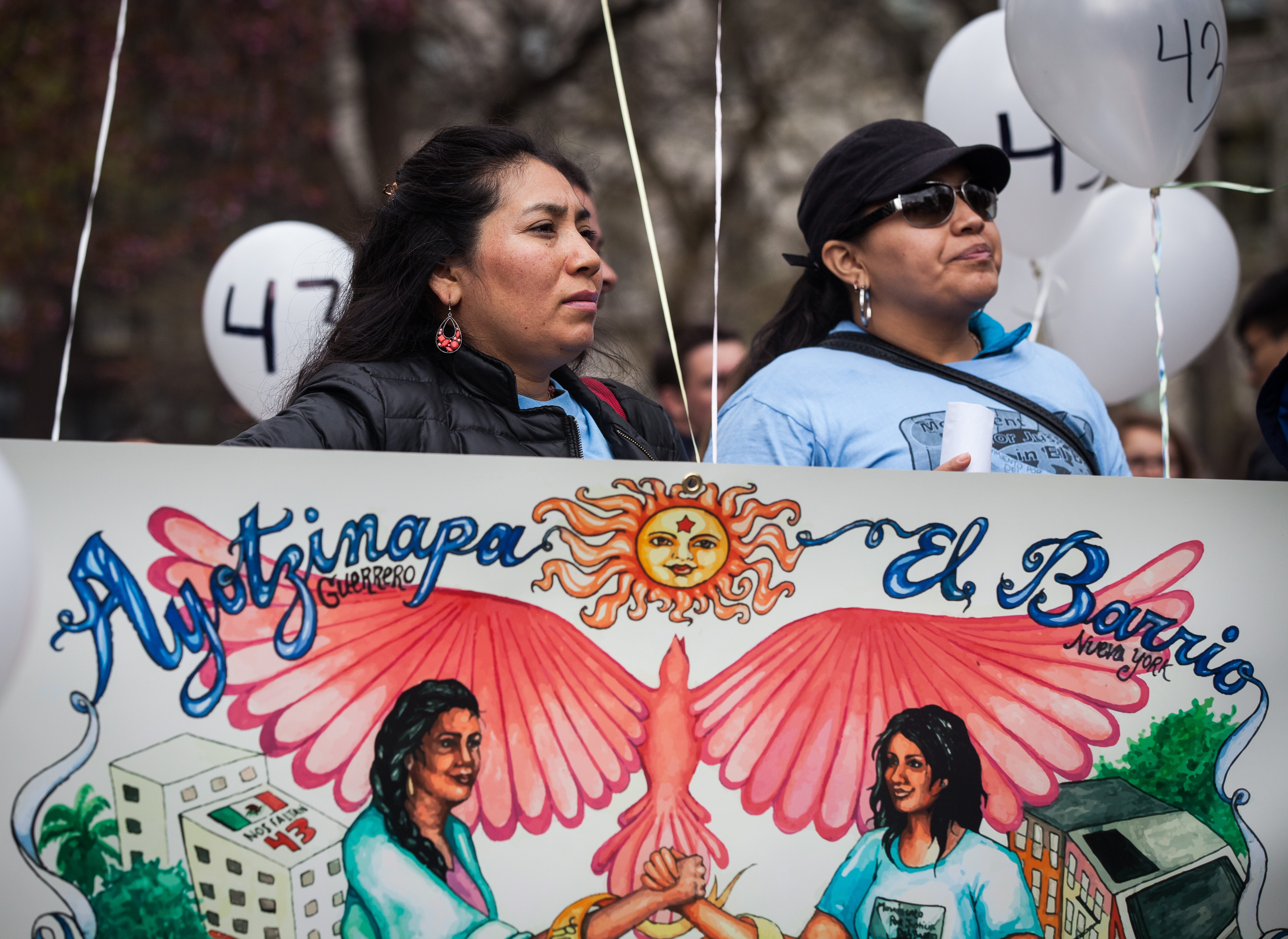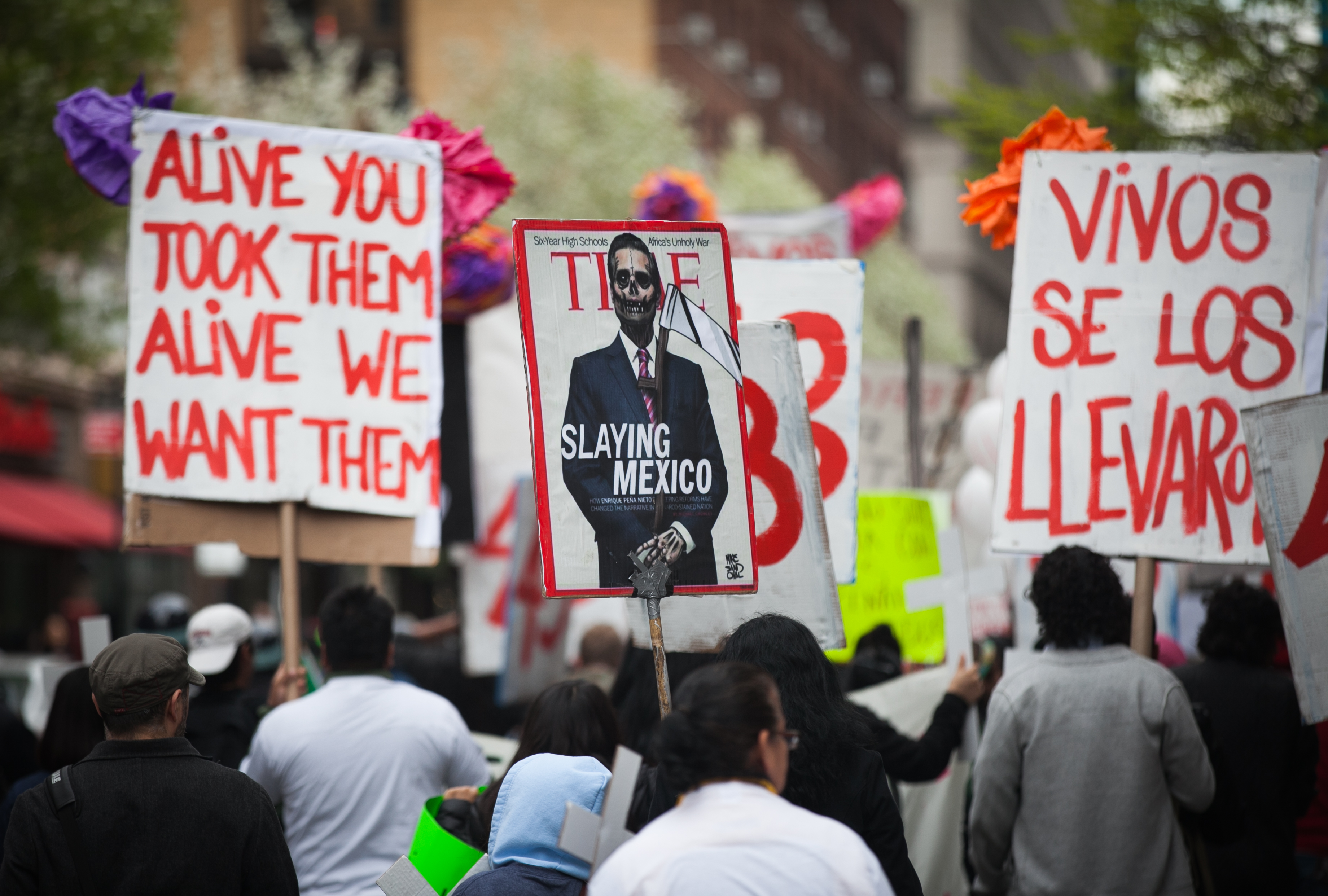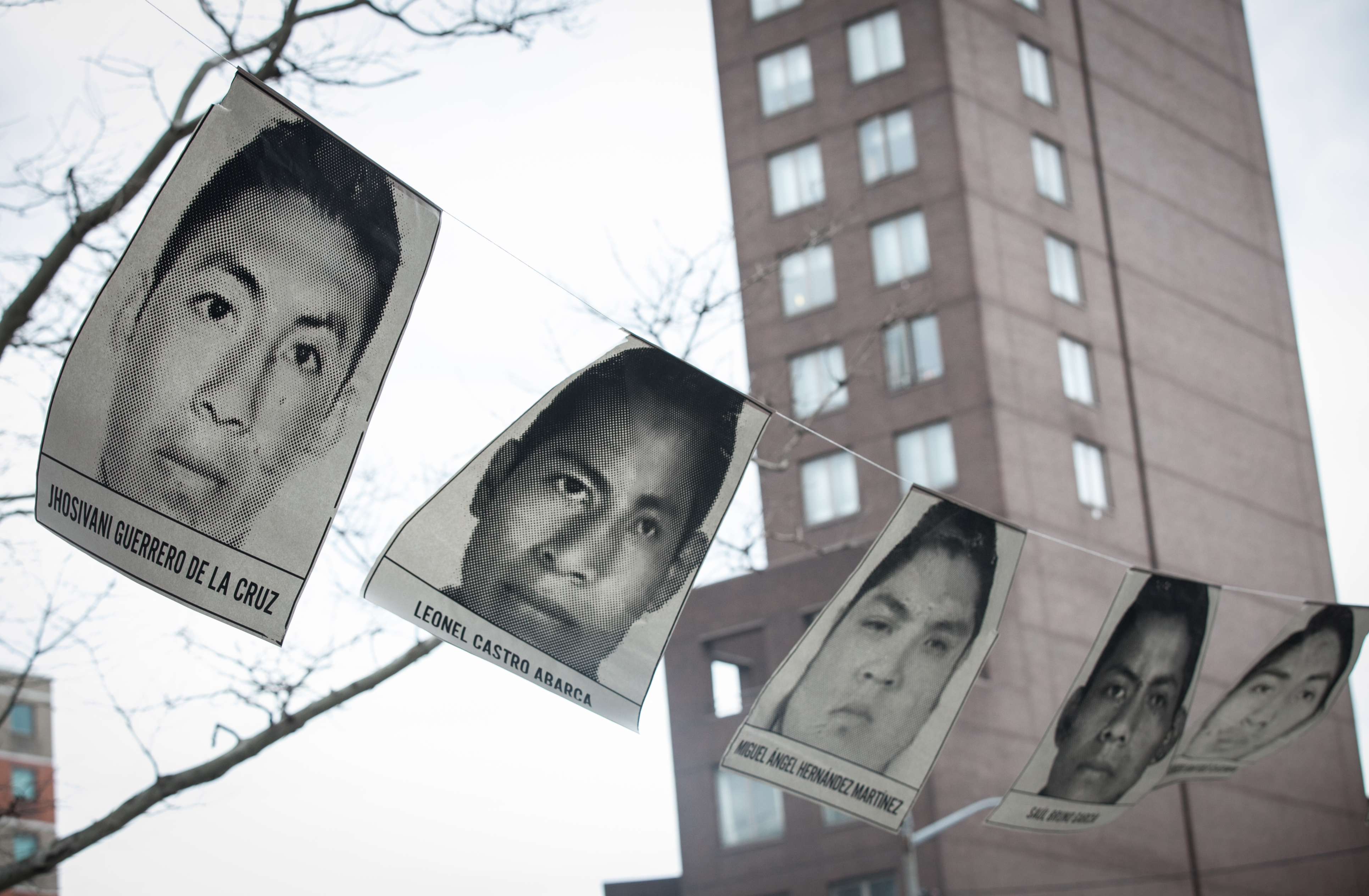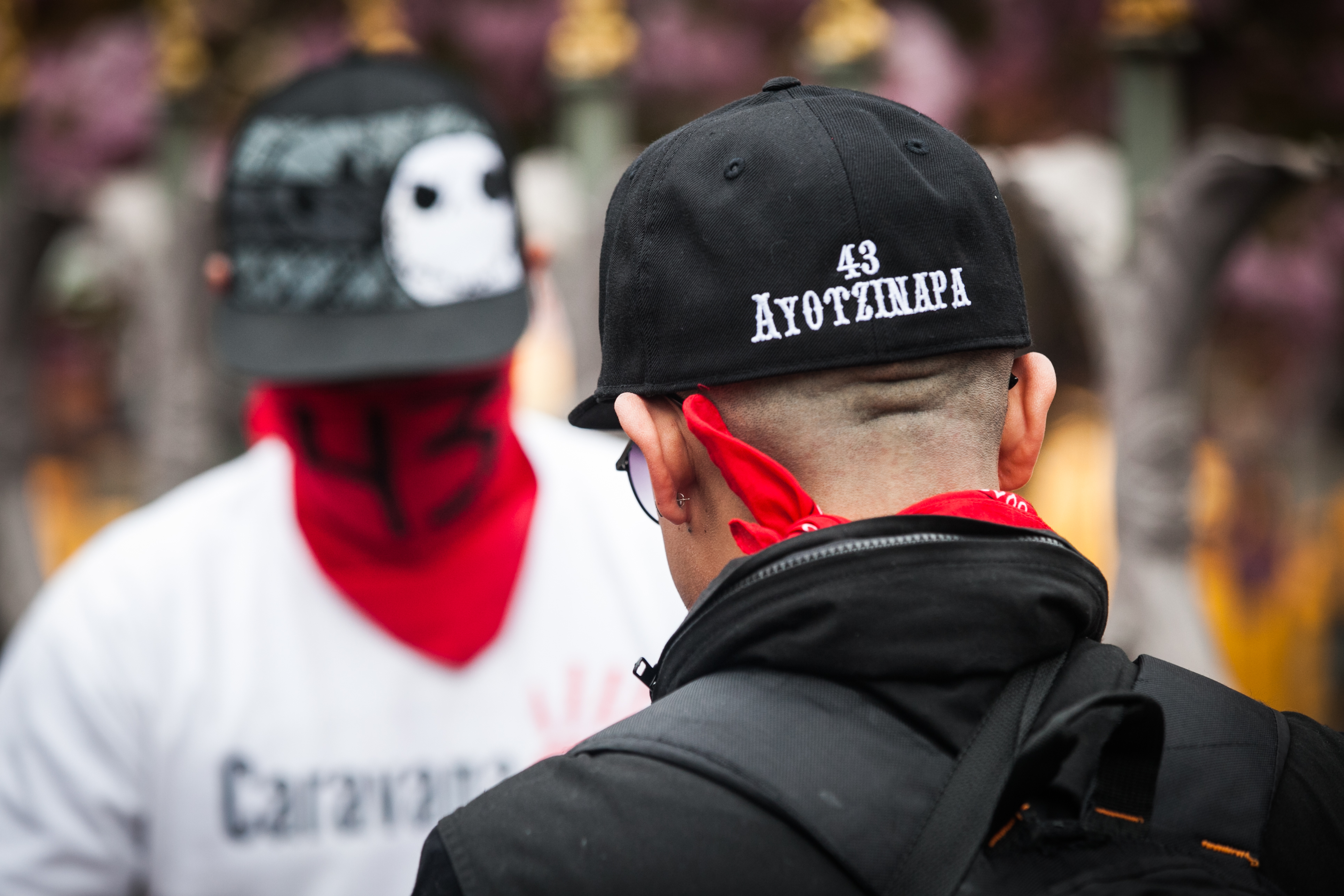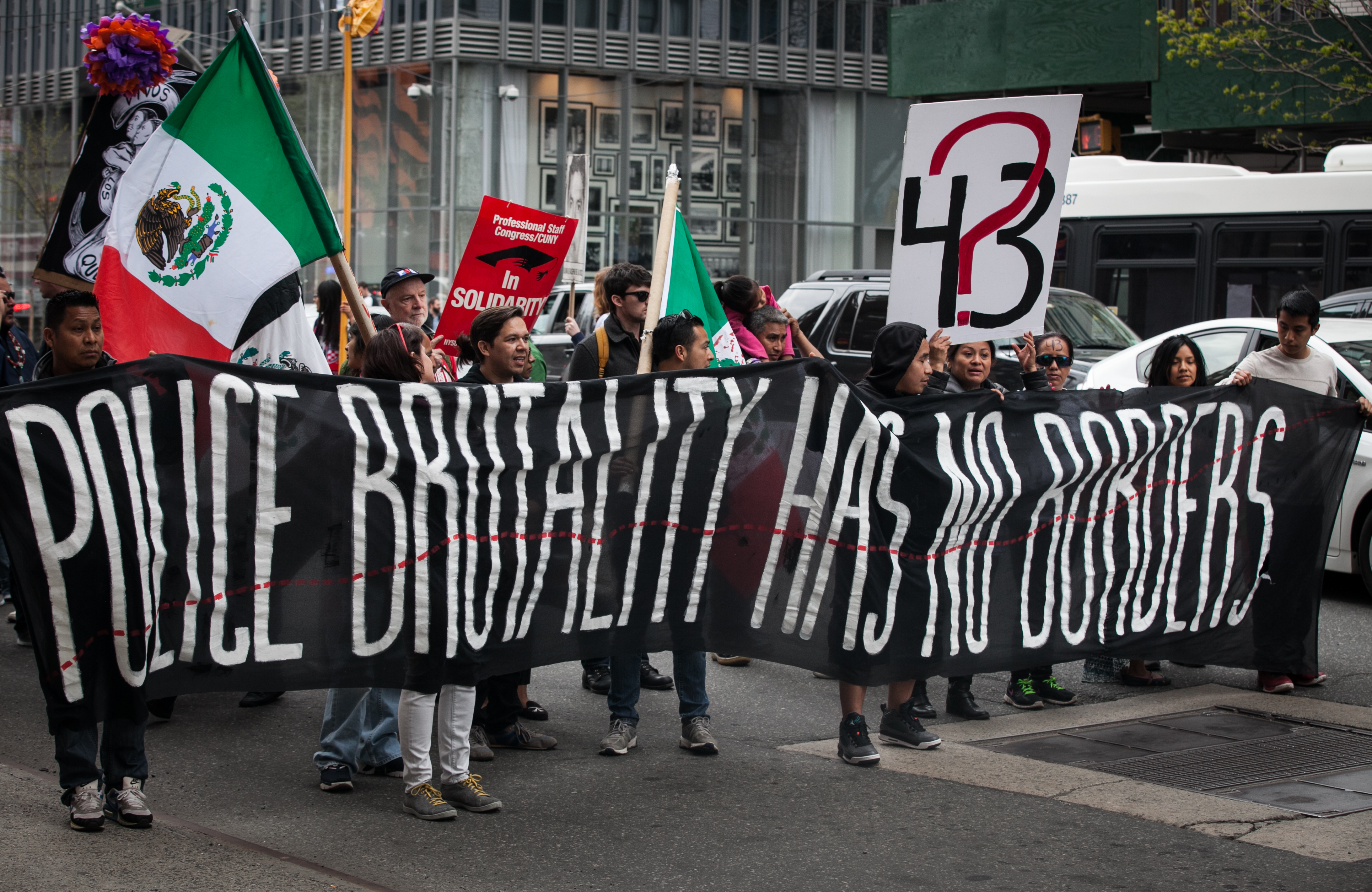Their parents are being told to ‘let it go’
In pictures: These are the faces of the Caravana 43 for the disappeared students of Ayotzinapa, Mexico.

All photos: Alejandro Jaramillo.
The Caravana 43, as we explained here, is a collective of the family members and friends of the 43 disappeared students from Ayotzinapa, Mexico. For over a month, they toured throughout most of the United States. They did so to spread awareness about their plight: their sons are still missing, but the official (and most likely false) narrative of the Mexican government says that they are dead. Thus, no official effort is being made to find them and their parents are being told to “let it go.”
The Caravana 43 culminated las Sunday in New York City, where about 1,500 people marched from Washington Square to the U.N. headquarters in Manhattan, explaining their reasons to march to anyone interested along the way.
We went there with photographer Alejandro Jaramillo, who took these shots of the faces of the protestors.




